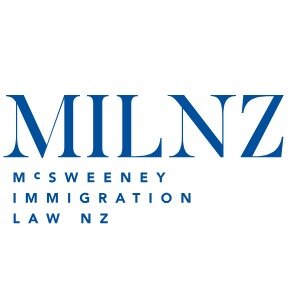Best Citizenship Lawyers in Auckland
Share your needs with us, get contacted by law firms.
Free. Takes 2 min.
List of the best lawyers in Auckland, New Zealand
About Citizenship Law in Auckland, New Zealand
Being a part of New Zealand, the citizenship laws that apply in Auckland are the same as the country as a whole. These laws concern both the acquisition and loss of citizenship, and recognise not only descent and birth within the territory, but also incorporation of overseas territories. Dual or multiple citizenship is permitted in New Zealand, and there are four principal ways someone can become a New Zealand citizen: by birth, by descent, by grant, or by incorporation of territory.
Why You May Need a Lawyer
While the processes of acquiring or changing citizenship can seem straightforward, they are often filled with complex paperwork, legal hurdles, and specific requirements. Immigration lawyers hold expertise in handling these cases. Whether you’re applying for residency, need help with visa applications, or dealing with deportation issues, the assistance of a lawyer can ensure that you understand your rights and obligations, fill out all paperwork correctly, and have the best chance of achieving your desired outcome.
Local Laws Overview
New Zealand’s citizenship laws are governed by the Citizenship Act 1977 and the Citizenship (Western Samoa) Act 1982. Under the Citizenship Act 1977, individuals born in New Zealand, the Cook Islands, Niue, or Tokelau before 2006 automatically gained New Zealand citizenship. Individuals born in New Zealand after 2006 automatically gain New Zealand citizenship if at least one parent is a New Zealand citizen or resident. Citizenship can also be granted to those who have lived in New Zealand as a resident for most of the last 5 years.
Frequently Asked Questions
Who is eligible for citizenship by grant?
For citizenship by grant, the applicant should be a resident for at least the last 5 years, able to communicate in English, of good character, and have an intention to stay in the country.
Can I hold dual citizenship?
Yes, New Zealand accepts dual or multiple citizenships. However, some countries do not. If the individual's original citizenship does not allow dual citizenship, they can lose it upon obtaining New Zealand citizenship.
Can citizenship be revoked?
New Zealand citizenship can be revoked if it was obtained by fraud, false representation, or concealment of relevant information.
Do children born in New Zealand gain automatic citizenship?
Children born in New Zealand, the Cook Islands, Niue or Tokelau before 2006 are automatically New Zealand citizens. After 2006, at least one parent must be a New Zealand citizen or resident.
What is the role of a citizenship lawyer?
The role of the citizenship lawyer is to guide an individual through the legal procedure of acquiring, changing, or retaining citizenship. The lawyer will also be able to assist with the complex paperwork, legalities and specific requirements needed to complete such processes.
Additional Resources
Additional resources that can assist someone in need of legal advice include the Ministry of Business, Innovation and Employment, as it operates Immigration New Zealand. The Office of Ethnic Communities, set up to improve outcomes for ethnic communities, is another great resource. Professional bodies such as the New Zealand Law Society and Auckland District Law Society also provide useful guidance.
Next Steps
If you need legal assistance in citizenship, it’s recommended that you talk to a lawyer specialising in immigration or citizenship law. You can also approach Auckland-based immigration advisory organisations. Ensure to gather all necessary and relevant documents which can help your lawyer understand your situation and advise you better. Stay informed and be proactive about your rights and legal procedures.
Lawzana helps you find the best lawyers and law firms in Auckland through a curated and pre-screened list of qualified legal professionals. Our platform offers rankings and detailed profiles of attorneys and law firms, allowing you to compare based on practice areas, including Citizenship, experience, and client feedback.
Each profile includes a description of the firm's areas of practice, client reviews, team members and partners, year of establishment, spoken languages, office locations, contact information, social media presence, and any published articles or resources. Most firms on our platform speak English and are experienced in both local and international legal matters.
Get a quote from top-rated law firms in Auckland, New Zealand — quickly, securely, and without unnecessary hassle.
Disclaimer:
The information provided on this page is for general informational purposes only and does not constitute legal advice. While we strive to ensure the accuracy and relevance of the content, legal information may change over time, and interpretations of the law can vary. You should always consult with a qualified legal professional for advice specific to your situation.
We disclaim all liability for actions taken or not taken based on the content of this page. If you believe any information is incorrect or outdated, please contact us, and we will review and update it where appropriate.

















